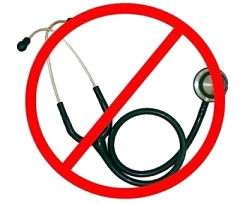Save money on your Health Insurance in 2016.
As 2016 draws ever closer it brings with it new hopes and promises of resolutions that often involve eating a healthier diet, doing more exercise and saving more money. Whilst all of these things are indeed positive lifestyle changes, they do of course need to be kept!
What we at Insurance Advice Bureau can promise you, is that with a little bit of research you can easily make small changes to your health insurance policy that will start saving you money TODAY! That’s right, we can help you keep your resolution to save money and hopefully that will give you the impetus to a) eat more healthily, which should lower your chances of needing to make a claim on health insurance and b) join a gym, because you can pay for membership with the money you’ve saved on your policy.
If you want to save money on an existing health insurance policy or if you are new to health insurance and want to make sure you get the best deal possible, then read on for our top money saving tips.
ONLY PAY FOR WHAT YOU NEED
Now, you might well be thinking, ‘Hang on a minute, how can I predict what I might need to make a claim for on a health insurance policy, when it hasn’t even happened yet?’ and yes you’d be right, who knows what accidents, illnesses or injuries may occur in the future. However, there are many policies out there that will cover you for a lot, and we mean A LOT, of eventualities, which you need to decide whether or not you think you are likely to benefit from being covered against.? One way to help you make this decision is by taking a look at your family medical history, for example does cancer run in the family, is there a history of arthritis etc.?  BUPA offer extended cancer care cover and cover for hypertension as part of their standard policy, but these naturally increase the premium and you should therefore consider whether it is entirely necessary for you and your personal circumstances. Take the time to sit down with your relatives and even your GP to work out what conditions you are statistically more likely to suffer from. You can then use this list when you come to research the best health insurance policy for you. Other additional options that may automatically be included in a health insurance policy include things like, psychiatric cover, therapies and alternative treatments, such as osteopathy and chiropody. Speak to the insurer and see whether they are able to tailor the policy to your needs by removing some of the ‘extras’ and therefore bring the premium down. If they’re not willing to be flexible, then quite frankly you should not be willing to give them your business.
BUPA offer extended cancer care cover and cover for hypertension as part of their standard policy, but these naturally increase the premium and you should therefore consider whether it is entirely necessary for you and your personal circumstances. Take the time to sit down with your relatives and even your GP to work out what conditions you are statistically more likely to suffer from. You can then use this list when you come to research the best health insurance policy for you. Other additional options that may automatically be included in a health insurance policy include things like, psychiatric cover, therapies and alternative treatments, such as osteopathy and chiropody. Speak to the insurer and see whether they are able to tailor the policy to your needs by removing some of the ‘extras’ and therefore bring the premium down. If they’re not willing to be flexible, then quite frankly you should not be willing to give them your business.
LIMIT YOUR HOSPITAL CHOICE
Most insurers will give you free choice of hospital when it comes to deciding where you are entitled to be treated, the exception to this is Axa and Exeter Family Friendly, who have their own specific list. However, with this freedom of choice comes a higher premium.
The solution? Narrow down the hospital list.
It’s worth exploring the different options available to you, as some policies may provide you with the option of choosing a list that includes just NHS Trust and Partnership hospitals (this could lower your premium by 25%) whereas others may limit you to local hospitals or even to private wings of NHS hospitals.  If you live in Scotland or Northern Ireland you can also reduce the list to only include hospitals that are in those countries and this could save you 40% on your monthly premium. Unfortunately, for those of you who live in London, it is highly unlikely you will be able to reduce your health insurance through hospital list alone. Hospital care in the capital comes at a price and policies generally have to be upgraded and are therefore more expensive, owing to the fact that most of the biggest private hospitals are based in London. In this instance, it is worth accepting that for peace of mind and complete care, you should pay the inflated price and look for other ways to lower your premium. It’s one thing trying to save money, but it should never be to the detriment of your health or to the benefits that fully comprehensive cover would give you.
If you live in Scotland or Northern Ireland you can also reduce the list to only include hospitals that are in those countries and this could save you 40% on your monthly premium. Unfortunately, for those of you who live in London, it is highly unlikely you will be able to reduce your health insurance through hospital list alone. Hospital care in the capital comes at a price and policies generally have to be upgraded and are therefore more expensive, owing to the fact that most of the biggest private hospitals are based in London. In this instance, it is worth accepting that for peace of mind and complete care, you should pay the inflated price and look for other ways to lower your premium. It’s one thing trying to save money, but it should never be to the detriment of your health or to the benefits that fully comprehensive cover would give you.
Pay an excess
Excess is the amount you personally contribute towards a claim before the insurance company pay the rest. Not all policies include an excess as standard, but if you contact the insurer and agree to pay an excess you will notice significant savings on your monthly premiums. Excesses tend to start at ?100, which will reduce your monthly premium by 5%, and can rise up to as much as ?1,000, which will lower them by up to 35%. In order to make the most savings you should ideally be aiming to set an excess level for as much as you can afford. One important thing to remember is that once you have paid your excess you will no longer be required to pay it again for the rest of the year; it is a one off annual payment. So, should you end up needing to make, say, 3 claims in one year and you paid the whole excess amount with the first claim, you would not be required to pay any more for the subsequent claims.
Six week wait option
This option was first introduced into the PMI market as a means of providing more affordable health insurance cover to individuals, who had been priced out of the market. If you opt to include the six week wait option as part of your policy you could be looking at saving up to a third on your premium, so it is something well worth considering. But, what exactly is it? If an NHS waiting list is longer than 6 weeks for any treatment, the six week wait option entitles the policy holder to receive immediate private treatment. However, if the waiting list is less than six weeks the policy holder must agree to be treated by the NHS. It is a fantastic, affordable solution that not only opens up health insurance to a much wider market, but also helps people avoid long NHS waiting lists and get their treatment sooner.
But, what exactly is it? If an NHS waiting list is longer than 6 weeks for any treatment, the six week wait option entitles the policy holder to receive immediate private treatment. However, if the waiting list is less than six weeks the policy holder must agree to be treated by the NHS. It is a fantastic, affordable solution that not only opens up health insurance to a much wider market, but also helps people avoid long NHS waiting lists and get their treatment sooner.
Pay annually
We know that this won’t be an option for everyone, but if you can afford to pay for your health insurance in one lump sum, instead of in monthly instalments, you could save yourself some money. Insurers take the view that by giving you the option of paying monthly they are doing you a favour and in return for this favour they like to add on a bit of interest and maybe even admin fees as well, which means the amount you end up paying over the year is higher than the original annual quote. If you can’t afford to pay in one go, why not consider taking out a 0% interest credit card to pay it off? As long as you stick to the terms of the credit card and continue to pay off each month what you would pay for your health insurance, you have the convenience of monthly payments without the added interest charges.
Only claim if you have to
It goes without saying, that the more claims you make on a policy the higher the premium will be the following year. Therefore, if you can avoid making a claim, or at least minimize the amount of times you claim on your policy, you will end up paying less for it in the future. Now, that’s all well and good, but if you genuinely need to make a claim and have no other way of funding your treatment then of course you must make a claim, that it why you have taken out health insurance after all. However, if you really could get treatment on the NHS or the treatment is fairly minor and inexpensive, it probably isn’t worth making a claim for it through your insurance.
Self insure
We’re all at risk of being in an accident or getting ill, but obviously if you have youth on your side and are generally fit and healthy, those risks are much more minimal and you may question whether or not you need health insurance. It may be worth you reading our article, ‘What will I get from Health Insurance that I won?t get on the NHS?’, which helps explain the added benefits of having a good health insurance policy in place. If after reading all of this, you are still unsure as to whether or not you can afford health insurance, then why not consider self insuring? By paying a set amount into a specific high interest savings account each month; many banks allow you to split an account into separate titled sub-accounts in order to keep track of what money is saved for what purpose, you can soon build up a nice amount for if and when the unfortunate happens. As a bonus, if you do remain fit and healthy, the money stays in the account untouched and you haven’t lost a single penny, in fact you will have gained some in interest.
If after reading all of this, you are still unsure as to whether or not you can afford health insurance, then why not consider self insuring? By paying a set amount into a specific high interest savings account each month; many banks allow you to split an account into separate titled sub-accounts in order to keep track of what money is saved for what purpose, you can soon build up a nice amount for if and when the unfortunate happens. As a bonus, if you do remain fit and healthy, the money stays in the account untouched and you haven’t lost a single penny, in fact you will have gained some in interest.
Use comparison sites
As is the case with any insurance product you should always do your research before committing to anything and the best place to start is with comparison websites, Confused.com, CompareTheMarket, Gocompare etc. You must also remember that when your existing policy comes to an end you don’t have to automatically renew with the same company. Insurers save all of their best deals for new customers, so use this as an opportunity to shop around and by all means play them off against each other!
You really can save money on your health insurance and what a perfect way to start 2016 with the knowledge that not only have you got peace of mind that your health is being looked after, but your wallet’s looking pretty healthy as well!







